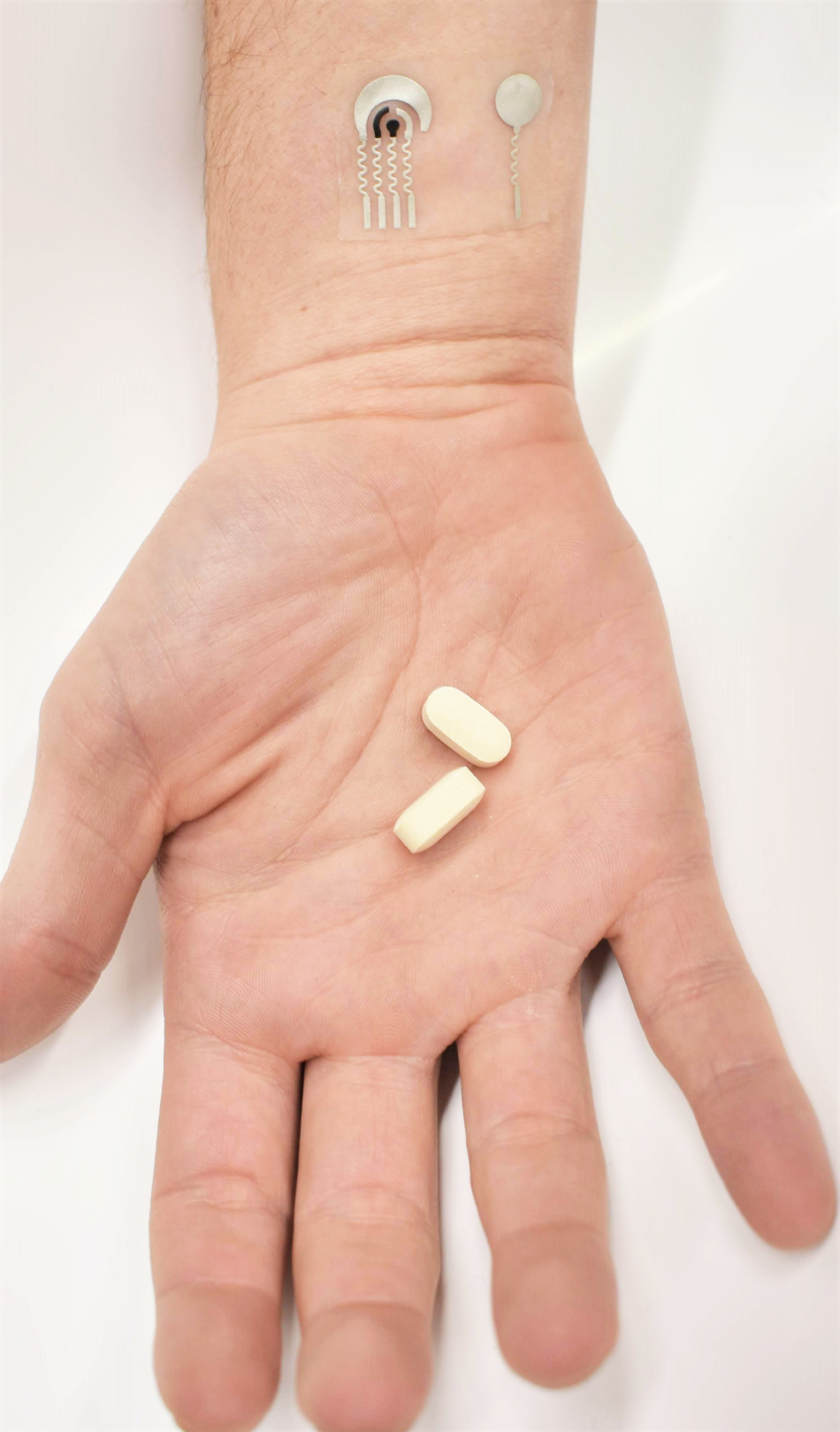May 20 2020
At the University of California San Diego, a research team has designed a wearable, non-invasive Vitamin C sensor that can offer a new, highly customized option for users to monitor their dietary adherence and daily nutritional intake.

Image Credit: University of California San Diego.
The study was published in the ACS Sensors journal on May 18th, 2020.
Wearable sensors have traditionally been focused on their use in tracking physical activity, or for monitoring disease pathologies, like in diabetes. This is the first demonstration of using an enzyme-based approach to track changes in the level of a necessary vitamin, and opens a new frontier in the wearable device arena.
Juliane Sempionatto, Study First Author, Jacobs School of Engineering, University of California San Diego
Sempionatto is a PhD Candidate in nanoengineering in Joseph Wang’s lab.
According to Joseph Wang, “Wearable sensors have rarely been considered for precision nutrition.” Wang is a professor of nanoengineering and director of the Center of Wearable Sensors at UC San Diego.
Why Vitamin C is Important
Vitamin C is an important dietary component as it cannot be produced by the human body and must be acquired from food or vitamin supplements. Vitamin C is crucial for maintaining collagen production and immune health, plays a vital role in wound healing, and enhances absorption of iron from plant-based foods.
The study that is now in progress analyzes whether or not vitamin C’s role as an antioxidant may promote its use in the treatment of diseases such as heart disease and cancer.
Most essentially, vitamin C is being investigated in various clinical trials for its potential in promoting recovery from COVID-19, the disease caused by the novel SARS-CoV-2 virus.
Most of the earlier studies have found a link between high doses of vitamin C, alongside other treatments, and decreased mortality rates in patients with sepsis and, in one specific study, acute respiratory distress syndrome (ARDS)—both general conditions observed in critical cases where patients with COVID-19 need intensive intubation and care.
If vitamin C helps patients to recover from the disease, such a wearable sensor may help doctors and also recovering patients to monitor their vitamin C levels at the time of treatment and recovery. This could offer a chance for healthcare providers to accurately adjust vitamin supplementation to meet the requirements of a patient.
The Wearable Device
An adhesive patch included in the new wearable device can be applied to the skin of a user, including a system to activate sweating and an electrode sensor built to rapidly detect the levels of vitamin C in sweat.
For this purpose, the device contains flexible electrodes including the enzyme ascorbate oxidase. If vitamin C exists, then the enzyme transforms it into dehydroascorbic acid and the resulting consumption of oxygen produces a current that is quantified by the device.
In vitro testing and testing in four individuals who had consumed vitamin C supplements and vitamin C-containing fruit juices demonstrated that the device was highly sensitive to identifying variations in the levels and dynamics of vitamin C when monitored over a period of two hours.
Also, the scientists tested the ability of the electrode detector to detect temporal vitamin C changes in saliva and tears, illustrating its cross-functionality. The variations observed in the vitamin C dynamics in different individuals show that the device exhibits the potential for personal nutrition applications.
Ultimately, this sort of device would be valuable for supporting behavioral changes around diet and nutrition. A user could track not just vitamin C, but other nutrients - a multivitamin patch, if you will. This is a field that will keep growing fast.
Juliane Sempionatto, Study First Author, Jacobs School of Engineering, University of California San Diego
The UC San Diego researchers have been working closely with DSM, a leading global nutrition company, with the aim of using wearable sensors for personal nutrition.
Despite the rapid development of wearable biosensors, the potential of these devices to guide personalized nutrition has not yet been reported. I hope that the new epidermal patch will facilitate the use of wearable sensors for non-invasive nutrition status assessments and tracking of nutrient uptake toward detecting and correcting nutritional deficiencies, assessing adherence to vitamin intake, and supporting dietary behavior change.
Joseph Wang, Professor of Nanoengineering, Director of the Center of Wearable Sensors, University of California San Diego
As there is an increasing need to develop new treatments for COVID-19, the researchers are also looking for methods for fast translation of this technology into a clinical setting, if vitamin C proves to be a useful treatment for the disease.
Journal Reference:
Sempionatto, J. R., et al. (2020) Epidermal Enzymatic Biosensors for Sweat Vitamin C: Toward Personalized Nutrition. ACS Sensors. doi.org/10.1021/acssensors.0c00604.